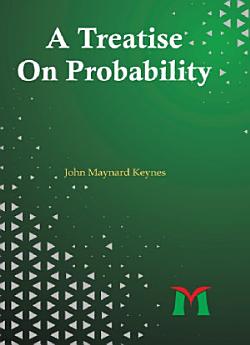A Treatise On Probability
John Maynard Keynes
Misha Books
Ebook
552
Pages
reportRatings and reviews aren’t verified Learn More
About this ebook
A Treatise on Probability (1921) by John Maynard Keynes is a groundbreaking philosophical work that redefines probability as a logical relation rather than merely a numerical frequency. Challenging the classical and frequentist interpretations, Keynes presents probability as a measure of rational belief based on incomplete information—essentially an extension of logic into conditions of uncertainty. He argues that probabilities reflect degrees of knowledge and can’t always be precisely quantified, introducing a nuanced, subjective perspective that laid the groundwork for modern Bayesian thought and decision theory.
- A pioneering work that redefines the concept of probability from a philosophical standpoint.
- Written by John Maynard Keynes before his fame as an economist.
- Challenges classical and frequentist views, proposing that probability is a degree of rational belief, not just a number.
- Emphasizes logical reasoning under uncertainty, rather than relying only on statistical data.
- Introduces the idea that some probabilities cannot be precisely quantified, only partially known.
- Serves as a bridge between logic, epistemology, and mathematics.
Rate this ebook
Tell us what you think.
Reading information
Smartphones and tablets
Install the Google Play Books app for Android and iPad/iPhone. It syncs automatically with your account and allows you to read online or offline wherever you are.
Laptops and computers
You can listen to audiobooks purchased on Google Play using your computer's web browser.
eReaders and other devices
To read on e-ink devices like Kobo eReaders, you'll need to download a file and transfer it to your device. Follow the detailed Help Center instructions to transfer the files to supported eReaders.








